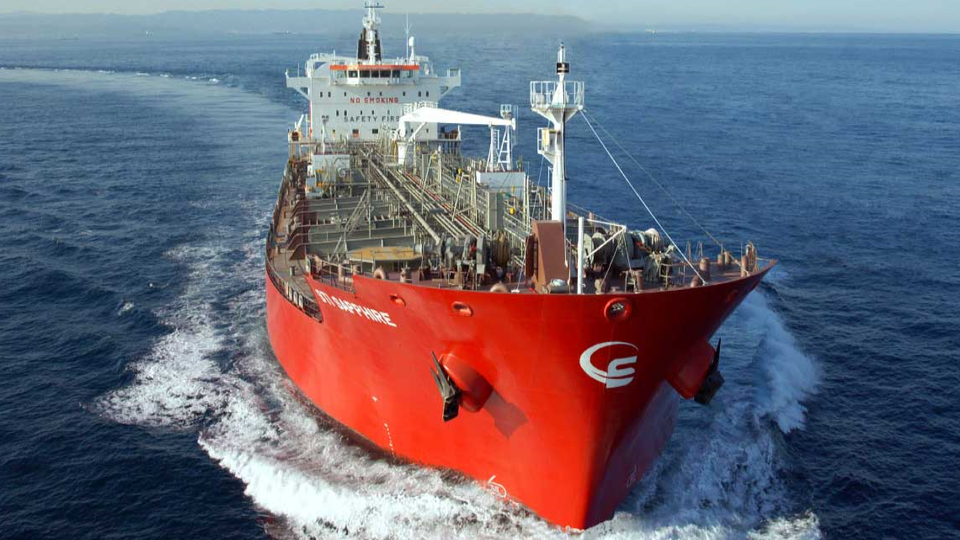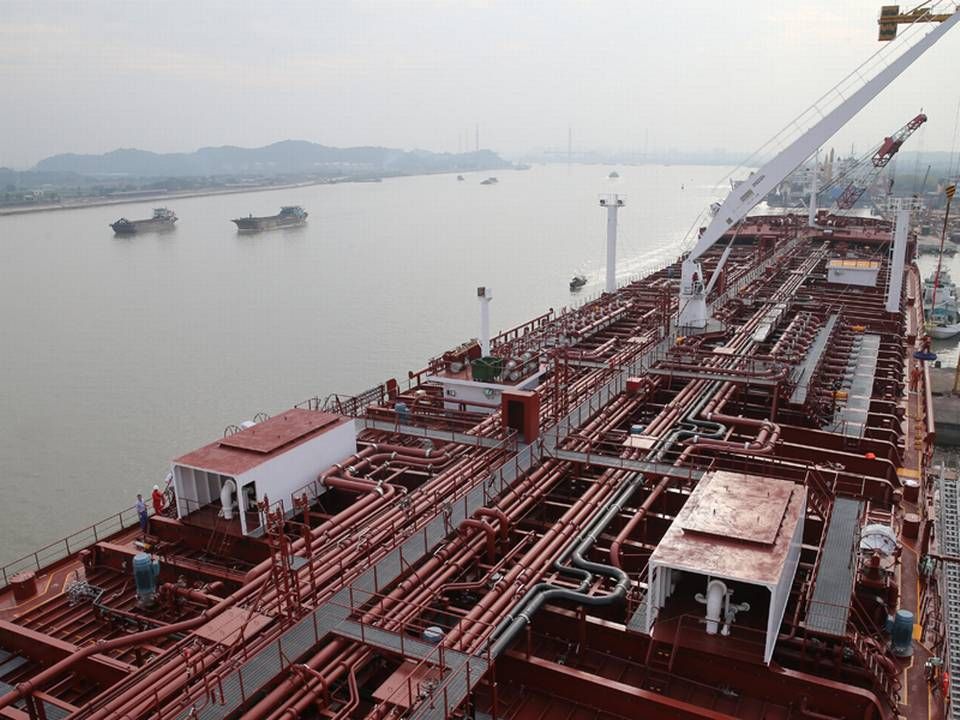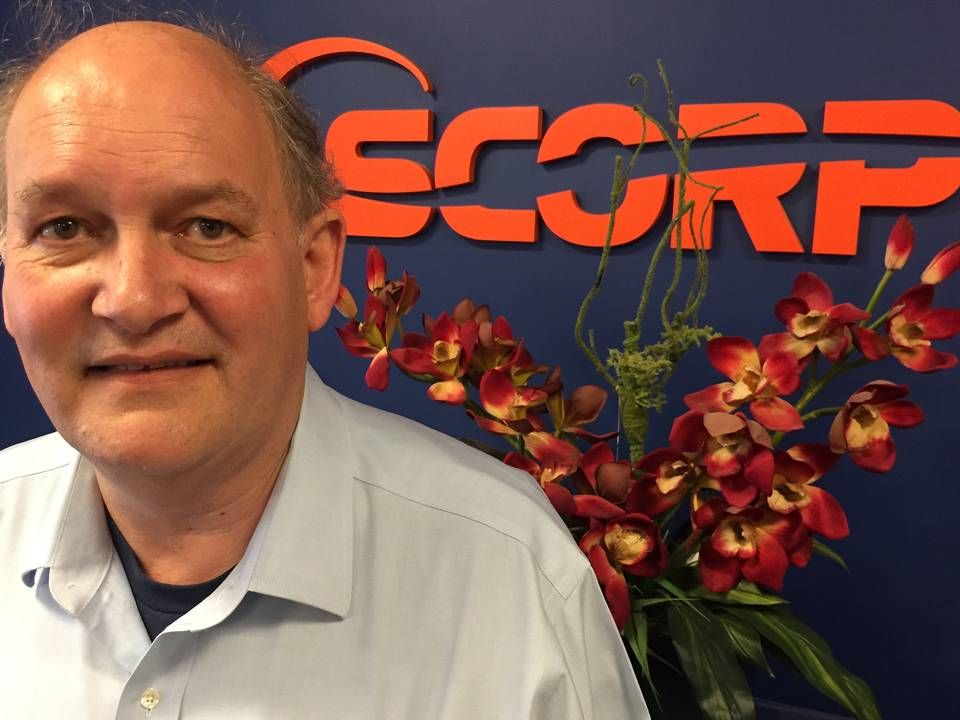Scorpio Tankers' new management duo replays the eco card

LONDON
In many ways, it is business as usual after 36 years in London.
Lars Dencker Nielsen just takes the elevator to a different floor when he comes in in the morning. The views of Buckingham Palace Gardens are the same and so is the industry where the former BP and Jellico executive now sits.
He only started his new job as Commercial Director with Scorpio Tankers few weeks ago, and this Monday morning, the market is challenging, also keeping in mind that Dencker Nielsen was awake until 3 AM as he had to go to the hospital with his youngest child to confirm that nothing serious was wrong.
Ultimately, the aim of Lars Dencker Nielsen's position is, together with CEO Robert Bugbee and the rest of the management group, to allow Scorpio's investors to finally reap the benefits of their investments in the product tanker industry and the Monaco/New York-based carrier.
So far, money banked on Scorpio Tankers has only rendered low returns if any, and the booming years of a prosperous market for the transport of refined oil products were short-lived. Today, product tanker is the most challenged sector of the shipping industry, if you ask investors in London.
The eco-fleet argument
However, Dencker Nielsen prefers to remain optimistic and contemplate the opportunities for Scorpio, which merged with Navig8 last summer and created the youngest fleet of all important product tankers with an average age of only 2.5 years.
The young-fleet argument – or the eco-fleet argument – has been the mantra of Scorpio Tankers since the carrier was created, but this time, says the Dane, the combined fleet stands the best chances to gain contracts among customers like oil majors Total and Chevron, which pick younger and younger vessels for their operations for environmental reasons. Says Dencker Nielsen.
He never sailed the seven seas but was born to become a shipping professional, following in the footsteps of his father, Carsten Dencker Nielsen, who served as a high-ranking executive with former Danish maritime pride East Asiatic Company (EAC). Not many decades ago, EAC ranked 1 in Denmark and number 2 was A.P. Møller.

Lars Dencker Nielsen left tanker carrier Jellico, which he founded five years ago after leaving BP, to join Scorpio's high-profile project, above all this was because of the members of the management group, he says. Allegations of bribery by a whistleblower made him step down from BP, which never investigated the case. Shortly after, he founded his own tanker company in 2013.
"Jellico went well. But this was an offer I could not refuse. The company is unique, but first of all my decision has to do with the people of Scorpio," he tells ShippingWatch at Scorpio's London office.
He has worked closely with CEO Robert Bugbee and with Chairman Emanuele Lauro "since Scorpio had a handful of vessels." Although he recognizes that the product tanker segment has been fiercely battling for profitability for some time, he is convinced that Scorpio's assets – the young fleet – will be the differentiator now. He believes the next two years leading up to 2020 will create a two-tier market in which Scorpio is on the winning team.
Giant operation
"All together, we have 170 vessels in our fleet, owned or chartered. It is a giant operation, and with the clear strategy of the management group we can do it a lot better than our peers," says Dencker Nielsen.
The latest annual report from Scorpio Tankers shows a full-year deficit of USD 158.2 million compared to a loss in 2016 of USD 25 million.
According to the annual report, the acquisition of Navig8 in 2017 caused the deficit at Scorpio Tankers to grow. Revenue for the combined fleet of product tanker vessels came to USD 512 million for all of 2017, which marks a minor setback from USD 522 million in 2016.
Scorpio Tankers' acquisition of Navig8 proved costly in 2017
Lars Dencker Nielsen admits that the downturn of the market has surprised him, but he sees favorable openings in the MR segment. "Most of all, the second half of 2018 looks interesting."
Further ahead, in 2020, the coming ballast water rules will convince many shipowners to scrap vessels that are too old and too costly for retrofit. This leaves, in a combination with expectedly increasing bunker prices, the market to the eco-players, argues Dencker Nielsen, citing "age" as the carrier's best card.
What about the oil peak that banks and other stakeholders are talking about?
"I do not believe in it for a long, long time. The world needs more oil. USA produces and exports more oil," he says.
The Scorpio Tankers share has dived 40 percent since the beginning of the year, reported Clarksons Platou recently. As such, Scorpio Tankers is among the worst performers of the 57 listed shipping companies. According to the analyst firm, the slide is caused by a combination of long-term low spot rates for product tanker and the fact that the shipping company faces repayment of debt in 2019.
Product tanker in intense consolidation race
Related articles
Product tanker in intense consolidation race
For subscribers
Scorpio appoints Dencker Nielsen as new commercial director
For subscribers




















